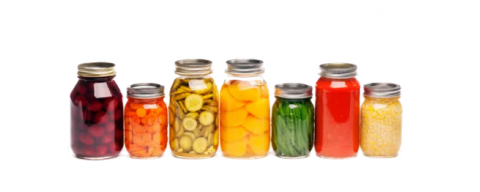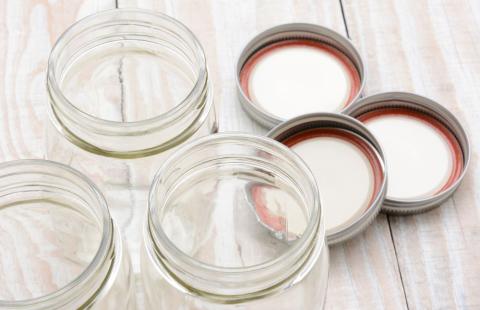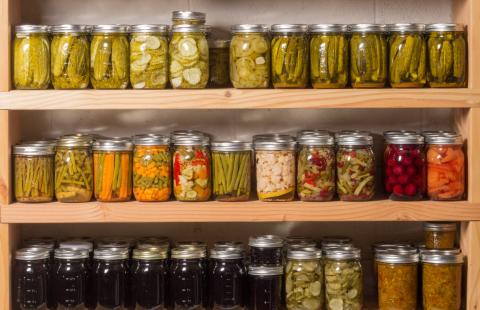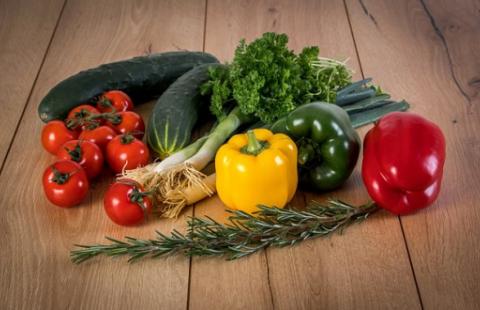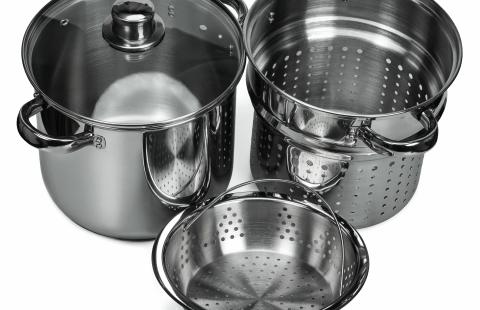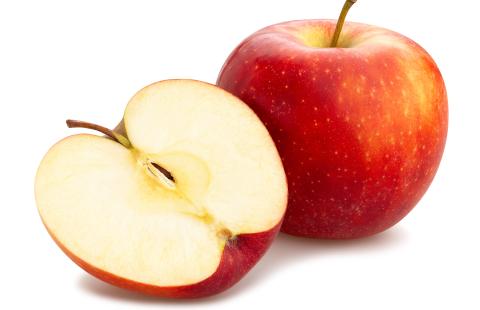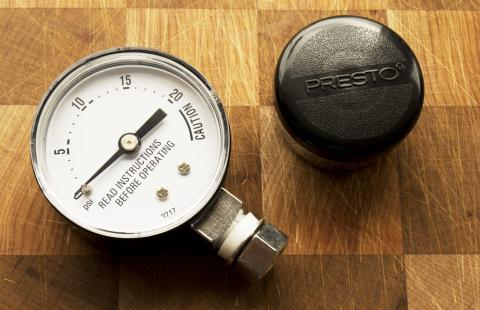UNH Extension's food safety specialists are committed to using the latest USDA & University research-based guidelines to give New Hampshire residents the tools they need to succeed when preserving food at home. We provide workshops, fact sheets and answers to questions on canning, freezing and storing your own or locally-grown fruits and vegetables.
Got Food Preservation questions? Ask UNH Extension.
Articles
Fermentation of food and beverages has been around for centuries as a safe way to preserve food. Fermenting is the process by which beneficial bacteri...
Learn More
One of the easiest, most convenient, and least time-consuming methods of preservation
Freezing is one of the easiest, most convenient, and least time-consuming methods of preserving foods.
Learn More
Successful canning starts with the use of jars in good condition and new lids with new or used ring bands in good condition.
Learn More
Resources
Freezing is an excellent way to store small and large game as well as game birds if it is done correctly. It is important to follow a few guidelines f...
Learn More
Information about washing, drying, removing ring bands, stacking, labeling, preventing contamination, and detecting spoilage.
Learn More
Selling Homemade Food Products in New Hampshire- Five Part Fact Sheet Series
Learn More
Done correctly, canning, freezing and drying fresh food from your own garden or purchased locally can be a good investment.
Learn More
Why Blanch Vegetables?
Blanching is the process of scalding vegetables in boiling water or steam for a short amount of time. Blanching ... Learn More
Blanching is the process of scalding vegetables in boiling water or steam for a short amount of time. Blanching ... Learn More
Freezing Fruit
Fruit can be safely frozen using different methods based upon the desired use of the final product. Alt... Learn More
Fruit can be safely frozen using different methods based upon the desired use of the final product. Alt... Learn More
Pressure canning is the only recommended method for canning low-acid vegetables.
Learn More
Acidified tomatoes and fruits are considered high acid foods and are safe to preserve using a boiling water canner. Boiling water canners work by tran...
Learn More
It’s never too early to start planning ahead for the coming canning season. Take the time now to check the various parts of your pressure canner for s...
Learn More
